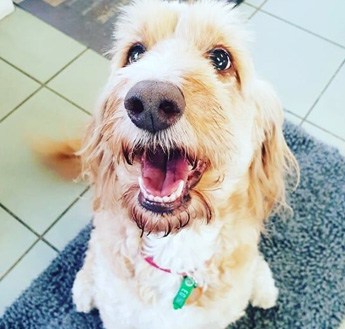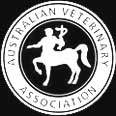Desexing (Dog)

Spey
- Recommended around 6 months of age
Benefits
- Stops unwanted puppies
- Stops dogs from coming into season
- Prevents pyometra (uterus infection) common in older intact females which can be fatal
Procedure
- Fasted overnight – i.e. no food is given from 8pm night before, normal access to water
- Admittance is between 8am – 8:30am for pre-operative examination and pre-medication
- The procedure is under General Anaesthetic, vet nurse in attendance throughout the operation
- Skin sutures need to be removed 10 days after operation (or if intradermal sutures used, a post-op check 7-10 days later to ensure all healed well)
- recommend pain relief injection
- ready to go home around 3:30-4pm
- aftercare notes provided, imperative to keep animal quiet for 2 weeks after the operation. Monitor wound for excessive swelling/discharge
- will have a tattoo in the ear after the procedure so the council knows it’s sterilised
Treatment Options for Mismatings
- Spey – if < 30 days pregnant. Increased risk of the procedure because of the enlarged uterine blood vessels and more fragile tissues. NB there will be a surcharge!
- Medical treatment if < 45 days. Require 2 injections 24 hours apart, the injections are very effective (95%) but is quite expensive +/- $300
Castration
- Recommend around 6 months or older depending on undesired behaviour
Benefits
- Stops male dogs marking their territory
- aggression and social behaviour
- secondary sexual characteristics ie <humping
- cheaper to register the dog with the council
Health benefits
- reduces the incidence of prostate problems in older males
Procedure
- no food to be given 8pm night before, normal access to water
- admitted is between 8am – 8:30am for pre-operative examination and pre-medication
- procedure performed under general anaesthetic with vet nurse in attendance throughout the operation
- a pain relief injection is given at the time of the procedure and pain relief tablets to go home with
- intravenous fluid therapy administered during the procedure
- the patient will be ready to go home between 3:00-5:30pm
- aftercare notes will be provided at the time of discharge ie. need to keep quiet for the first few days and monitor wound for excessive swelling/ discharge
If only 1 testicle is descended (Cryptorchid)
- strongly recommend castration!
- High incidence of cancer in the retained testicle
- Is a hereditary trait, and we recommended you do not breed from the dog
- This procedure is more expensive as the testicle may be inguinal or abdominal and may require a midline incision to look for missing testicle.
What to do before and after surgery
Before surgery:
Make a booking for your pets operation.
- If your pet is a dog, wash them the day before surgery as they are unable to be washed after until the stitches are removed.
- Do not give your pet food after 10pm the night before the operation and do not give them any water after 8am on the day of surgery.
- A blood test may be performed prior to surgery to check vital organ function.
- The vet will perform a thorough physical examination before administering an anaesthetic.
- Some pets will require intravenous fluid support during surgery. This will be discussed with you prior to the procedure.
- To ensure your pet is as comfortable as possible, all pets receive pain relief prior to desexing and to take home for a few days after the procedure.
After Surgery:
Keep your pet restrained and quiet as the effects of anaesthetic can take some time to wear off completely.
- Keeping them quiet is also essential to allow the wound to heal.
- Food and water should be limited to small portions only on the night after surgery.
- Follow any dietary instructions that the vet has provided.
- Ensure all post-surgical medications (if any) are administered as per the label instructions.
- Ensure your pet’s rest area is clean to avoid infection.
- Check the incision at least twice daily for any signs of infection or disruption (eg. bleeding, swelling, redness or discharge). Contact the vet immediately if these symptoms appear. Do not wait to see if they will spontaneously resolve.
- Prevent your pet from licking or chewing the wound. Special cone-shaped collars assist with this problem. A single chew can remove the careful stitching with disastrous effects.
- Ensure you return to us on time for routine post-operative check-ups and removal of stitches.
If you have any concerns before or after your pet has been desexed, please call us immediately to discuss. You can also check the Desexing FAQs here.

View Our
Pricing Guide

View Our
Services Brochure

View Our Optimum
Health Checklist
Contact us
See you and your furry friend soon!



